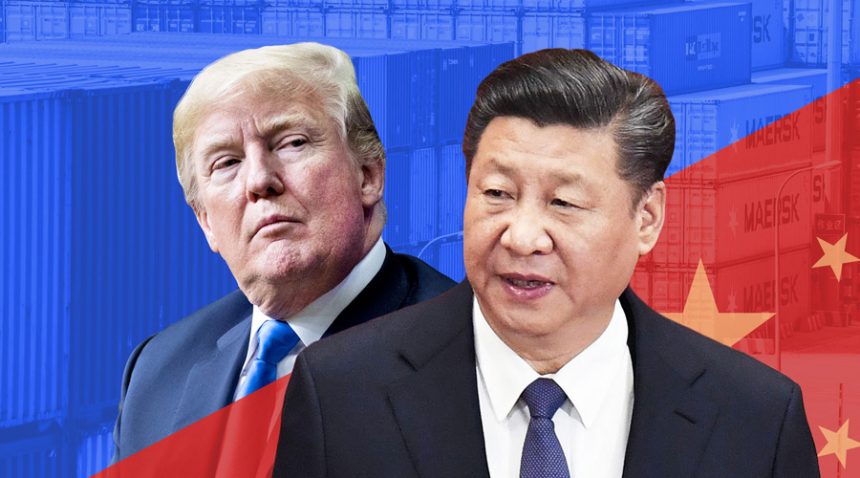Nifty IT index drops 16% this year as major IT firms adapt to shifting contract trends
The future of Indian IT industry, a US$283 billion powerhouse, may be uncertain due to looming Trump trade fears. Already struggling with shrinking deal renewals, the sector is now bracing for further disruptions due to US President Donald Trump’s aggressive trade policies.
Trump’s tariff war has sparked fears of a US recession, threatening the financial stability of India’s largest IT service providers. As companies postpone expenditure decisions, renewals of contracts are slowing down. Big deals are being replaced by short-term contracts, and the effect is being felt at big companies like TCS, Wipro, and HCLTech. With IT shares already falling, the times ahead appear tough.
Falling IT Deal Renewals: A Cause for Concern
The number of IT services deals ready for renewal has been dropping. According to reports, the numbers paint a worrying picture:
2023: 1,374 deals ready for renewal
2024: 1,226 deals ready for renewal
2025: Projected to drop further
One of the largest deals coming up for renewal is Metro Group’s $700 million deal with Wipro, which runs till 2025. Rather than committing to long-term deals, businesses are currently choosing short-term extensions amid economic uncertainty.
“Volatility in the business world will affect renewal deals. A few clients will focus on short-term issues and keep significant renewals on the backburner until they observe stability in the market,” Pareekh Jain, CEO of EIIRTrend, added.
Trump’s Trade War and Market Jitters
Apprehension over a U.S. recession has sent shivers down investor sentiment, following Trump’s intimation that his tariffs would lead to economic deceleration. The shock waves are already evident:
- Nasdaq and S&P 500 have hit their lowest point since September 2024.
- India’s Nifty IT index dropped 16% in 2025, indicating investor jitters.
This slowdown harms the recovery of the sector, which had picked up pace in Q3 FY25 following an 18-month lull. If the US economy continues to slow down, it may result in postponed IT expenditure and reduced contracts for Indian companies.
Shift Towards Short-Term Deals
As companies are getting more risk-averse, deal structures in the IT sector are changing. Rather than multi-year deals, companies are opting for shorter-term deals that provide more flexibility.
Large IT Deals (US$250M–US$500M, 3–6 years)
2023: 99 deals executed
2024: 329 deals executed
2025: Just 31 deals executed (as of January)
Small Deals (<US$100M, <1 year)
2023: 788 deals executed
2024: More than 900 deals executed
2025: 42 deals executed in January alone
“Large deals in Q4 2024 fell by 57% year-over-year, and US$1 billion+ and US$500 million+ contracts experienced a sharp decline,” stated Gaurav Karnaney, Senior Manager at Everest Group.
With companies reluctant to enter into long-term commitments, smaller deals now constitute the majority of the market.
IT Companies Adapt to the New Reality
As deal sizes reduce, Indian IT businesses are adapting their strategies. TCS CEO K Krithivasan recently indicated that deal cycles in Q3 FY25 fell by a few weeks. This shows that companies are quickly making decisions but are sticking to smaller contracts.
Wipro and HCLTech too have seen such trends. Wipro CFO Aparna Iyer pointed out that small and medium-sized deals were much better in Q3 FY25, increasing the company’s annual contract value (ACV).
“Quantum of small and medium-sized deals was much better in Q3, hence our ACV increased exponentially,” Iyer said on Wipro’s January 17 earnings call.
Impact on IT Workforce
While mega deals vanish, businesses also are revisiting their staffing strategies. The attrition rate in the IT industry has touched 14-15%, showing high job uncertainty.
To remain competitive, businesses are:
- Redeploying staff to more value-added projects.
- Using AI and automation to cut costs.
- Moving towards flexible staffing approaches to align with shifting deal pipelines.
Policy uncertainty in the US may lengthen renewal periods, compelling Indian IT companies to be cautious. “Companies may postpone significant commitments until market conditions normalize,” stated Piyush Pandey, SVP at Centrum.
Conclusion
The combination of declining IT deals, Trump’s trade war, and cautious spending approach placed Indian IT companies in a delicate situation. The decreasing numbers of mega deals and the increasing trend of firms opting for short-term contracts are making companies pivot quickly, thus, needing a flexible structure.
The Indian IT industry stands at a point where it needs to rethink its strategies, adopt AI-led efficiencies, and win smaller but regular contracts to ensure stability in an unpredictable global economy.






